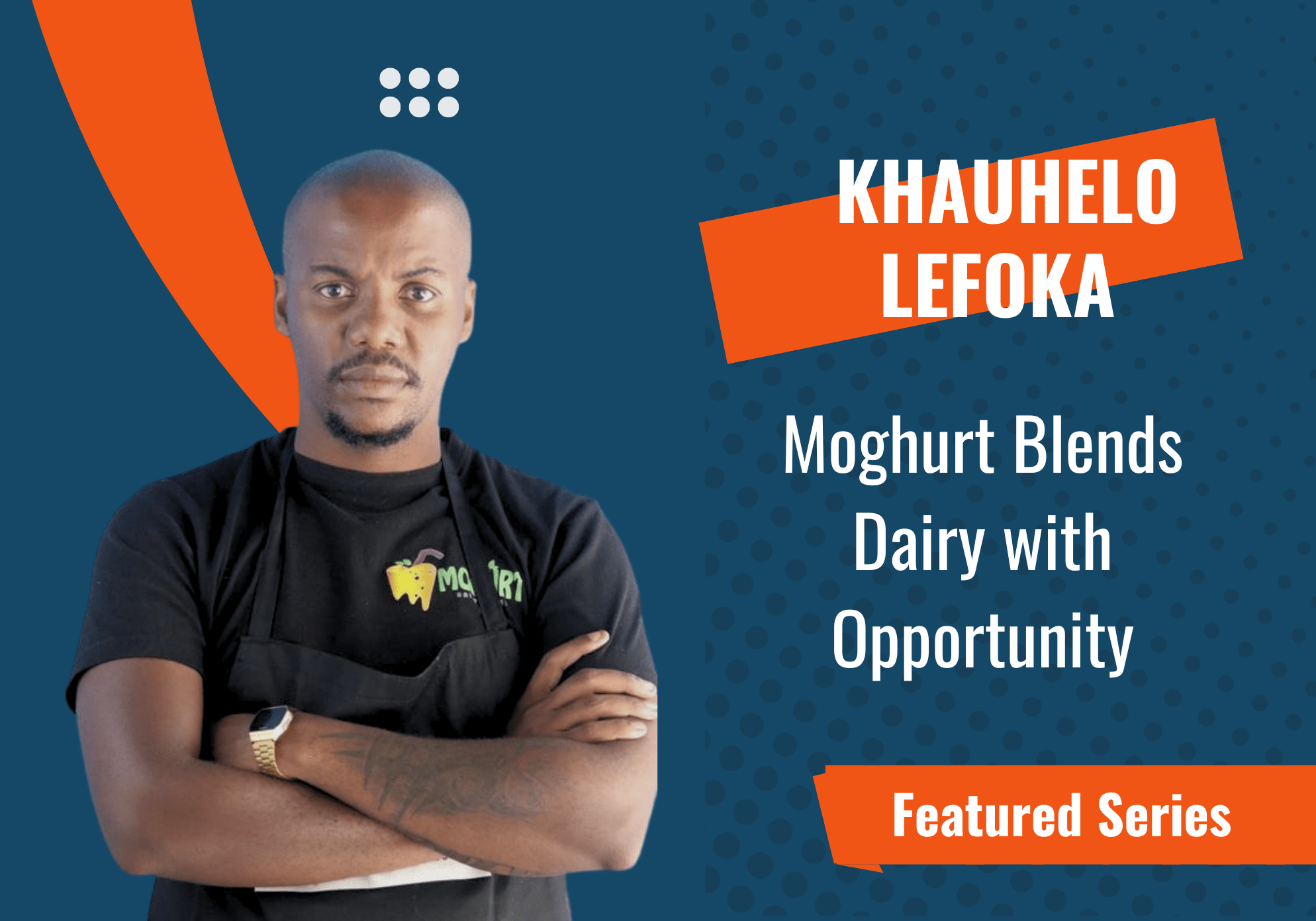Luni Libes
Interview with Luni Libes
FOUNDER and CEO, AFRICA EATS
Lives in: Bainbridge Island, USA
From a meat processing venture in Rwanda to a Tanzanian fruit and vegetable business, and a Malawian supplier of animal feed and veterinary products – these are just a few of the companies in the portfolio of Africa Eats. This investment holding company is dedicated to Africa’s food and agriculture value chain, drawing inspiration from Warren Buffett’s Berkshire Hathaway. In December 2024, the firm achieved a milestone by listing on the Stock Exchange of Mauritius.
How we made it in Africa editor-in-chief, Jaco Maritz, sits down with Luni Libes, founder and CEO of Africa Eats, to talk about investment opportunities in Africa’s agribusiness sector.
Topics discussed during the interview include:
- How Libes adapted elements of Berkshire Hathaway’s investment philosophy to create Africa Eats;
- Backing African agribusiness companies with a compounded annual revenue growth of 52%;
- Applying Africa Eats’ model to other African industries;
- Libes’ experience in setting up a publicly listed holding company;
- Why he chose Mauritius over other stock exchanges for the listing;
- Insights into the challenges and investment missteps faced by Africa Eats; and
- A closer look at standout companies in Africa Eats’ portfolio and their growth stories.
Watch the full interview below (only available here on howwemadeitinafrica.com)
Interview summary
Luni Libes, an American serial entrepreneur and founder of Africa Eats, envisions building a holding company that mirrors Warren Buffett’s Berkshire Hathaway – but with a focus on African agribusiness. His goal is to create value for investors by backing companies that address gaps in the agricultural sector.
Africa Eats currently holds stakes in 22 companies, including East Africa Foods in Tanzania, Rwanda’s Paniel Meat Processing, and Ugandan fish farming venture Geossy. Its strategy echoes elements of Berkshire Hathaway’s model – investing in promising companies, holding onto these investments in perpetuity, and generating value for shareholders through portfolio growth and capital gains.
“Once we found a company and we make an investment, we have no plans of ever selling that investment,” says Libes, contrasting Africa Eats to traditional private equity and venture capital funds, which are required to exit their investments.
Like Berkshire Hathaway, Africa Eats operates with a lean team – just three full-time staff. Berkshire Hathaway is one of the 10 most valuable public companies in the US, with a team of only about two dozen people in its Omaha headquarters, Libes points out.
However, he notes some key differences between the Africa Eats and Berkshire Hathaway models. For instance, the company focuses on investing in young companies – a departure from Berkshire Hathaway’s typical approach. Additionally, Africa Eats takes a more hands-on role in helping its portfolio companies grow and scale.
The making of Africa Eats
Africa Eats traces its origins to Fledge, a Seattle-based venture capital fund and business accelerator founded by Libes in 2012. Over time, Fledge received an increasing number of applications from African businesses, leading to a substantial portfolio of food and agriculture companies. In 2020, a selection of these companies were spun out into Africa Eats, with Fledge investors receiving shares in the new entity.
Since 2014, Africa Eats’ portfolio companies have achieved 52% annual revenue growth on a compounded basis, with total aggregate revenues exceeding $36 million in 2023.
In December 2024, Africa Eats listed on the Stock Exchange of Mauritius, as well as two of its portfolio companies – Ziweto Enterprises and Paniel Meat Processing (trading as Elite Meat Processors).
Libes envisions more of Africa Eats’ portfolio companies going public while continuing to invest in new businesses. “The plan is that every time we bring a company to the public market, we have to backfill our portfolio with at least one new one that could get there later. So we brought two public this year, we need to add two next year to refill the portfolio. That doesn’t mean we get rid of the ones that went public, but we need to have a queue of companies that are ready to go public.”
A snapshot of Africa Eats’ investment portfolio
Below is a selection of companies in Africa Eats’ portfolio.
East Africa Foods: A $14m business serving Tanzania’s fresh produce needs
East Africa Foods, based in Tanzania, was founded over a decade ago by Elia Timotheo. With $4,000 in savings, he started a business that sourced fruits and vegetables from farmers and sold them to hotels and restaurants. In its first year, the company generated $100,000 in revenue. By 2023, its top line had grown to $14 million, though it has captured only about 1% of Tanzania’s fresh produce market. The company operates four processing and distribution centres: two in Dar es Salaam, one in Dodoma, and the newest in Zanzibar, opened in early 2024.
“They are by far the largest fruit and vegetable aggregator in the country of Tanzania by orders of magnitude,” Libes says. Notably, the company sells all its produce within Tanzania, with no exports.
Its main revenue drivers are potatoes, onions, bananas, rice, and beans. Bananas, in particular, represent a key success story. Informal traders historically sold green bananas, but East Africa Foods introduced a ripening process that transformed the value chain. “Now they’re able to sell ripe yellow bananas because our company buys them from the smallholder farmers, brings them to the cities in big trucks, and then sends them through a five-day process to ripen. And because of that, they basically took over the banana market,” Libes explains.
Paniel Meat Processing and Truk Rwanda: Bridging gaps in meat and logistics
Libes first encountered Herve Tuyishime, the founder of Paniel Meat Processing (PMP), in 2016. At the time, the company relied on a single hand-crank machine to stuff sausages. Today, PMP is the second-largest chicken processor and the third-largest beef processor and distributor in Rwanda, with exports to the Democratic Republic of Congo among other African countries. The company surpassed $1 million in annual revenues in 2022, growing by over 50% in 2023 to reach $1.6 million.
Read our earlier interview with Herve Tuyishime: Entrepreneur grows meat processing business into a regional exporter
PMP later spun off its logistics division into a standalone company, Truk Rwanda. In addition to leasing space in its trucks, the new company established cold storage facilities in Rwanda’s five largest cities. Truk has since filled a critical gap in logistics services across Rwanda and other parts of Eastern and Southern Africa by offering trucking, cold chain solutions, and logistics services for food and agricultural companies.
Initially, Truk’s revenue was stalled at $500,000 in 2021 due to a lack of capital investment. Africa Eats unlocked value in 2022 through equity and debt investments that enabled the company to double its fleet to eight trucks. This led to a 335% revenue increase in 2022. With further investment from Africa Eats, Truk nearly tripled its revenue again in 2023, surpassing $6 million.
Central Park Bees: A global honey business
Central Park Bees, operating under the Swahili Honey brand, is a beekeeping and honey production company based in Tanzania. It aggregates and sells honey produced by a network of smallholder farmers. The business was founded by Joseph Kadendula, now its CEO, alongside his brother Christopher Kadendula. Africa Eats, through Fledge, discovered the company in 2018 and made an initial investment of approximately $21,000.
Libes recalls being struck by the company’s appealing packaging when he first met the founders. With Africa Eats’ backing, the business grew its revenue from $275,000 to $2.7 million within six years.
The company meets the growing demand for honey products both for retail use and medical purposes in Tanzania and abroad. It has become Africa Eats’ largest exporter, with clients in Europe, Asia, and North America. “They got to the scale where they can fill a whole container of honey or beeswax or both … And so they’re making nice dollar income now exporting,” Libes notes.
Read our earlier interview with Joseph Kadendula: Producing honey in Tanzania – CEO outlines the journey of Swahili Honey
Ziweto Enterprises: Tapping into Malawi’s agribusiness opportunities
Ziweto Enterprises is a supplier of agrovet products, a manufacturer of animal feed, and a future producer of day-old chicks and chicken in Malawi. Libes recalls first meeting the company in 2016 when it operated just three small agrovet shops – described as pharmacies for animals – serving small-scale farmers in rural areas. At the time, each shop earned only about $10,000 per year.
In 2017, the distributor supplying 80% of Ziweto’s products came up for sale, and the company raised the necessary funds to acquire the distributor.
By 2019, Ziweto had become the largest supplier of agrovet products in Malawi, providing vaccines, medicines, and other veterinary supplies to independent agrovet shops while also running 10 of its own stores. In 2022, the company expanded further by building an animal feed factory and reported revenues exceeding $1.3 million in 2023.
Responding to customer demand, Ziweto began constructing a hatchery for day-old chicks. Libes explains that Ziweto plans to use the proceeds from its public listing to build out the hatchery, expand its animal feed production, and begin operations in neighbouring countries.
“What we expect from this company in a year or two is that those farmers are going to say, great, these day old chicks you’re selling to us with the feed you’re selling to us and the medicines you’re selling, now we need someone to buy the actual chickens and bring them to market,” he says, adding that he expects Ziweto to diversify into poultry production.



















Discussion about this post